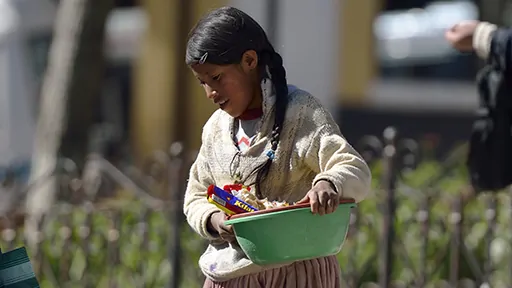Opinion Editorial Archive November, 2020: Arbiters of Denial

No rational person would claim (or even want) to be the arbiter of truth, although many profess to be. Take China. Last month, a history museum in Nantes, France pulled a planned exhibit about Genghis Khan. Its organizers had been collaborating with a museum in Inner Mongolia, China, when the Chinese government suddenly intervened, insisting that the exhibit avoid all uses of the words 'Genghis,' 'Khan,' 'empire' and 'Mongol.' That would be like having, say, a planetarium without using words like 'planet' and 'orbit.'
Any would-be arbiter of truth must understand that with that territory comes the role of arbiter of lies. New Zealand Deputy Prime Minister Winston Peters showed no hesitation last month in dismissing and even mocking a coronavirus denier, comparing him to a 'flat-Earther.'
Perhaps understanding the precarious nature of truth-and-lies arbitration belies the long-standing reluctance of social media platforms to self-censor. It is indeed a sign of the times when online courses are offered in which ordinary citizens can learn how to detect fake news, lies, misinformation and conspiracy theories.
Yet, last month, many of the big social media platforms continued their recent trend of banning, removing or attaching caution to certain types of content. Just a few days ago we saw how easily misunderstood the issue can be when one exchange went along these lines: Do you, Jack Dorsey (CEO of Twitter), believe that event X was real? Yes. Then do you believe that anyone denying event X is spreading misinformation? Yes. Then why does Twitter allow some posts that deny event X?
The logical flaw here is the implication that because one person holds a belief, all content across an entire platform should conform to that belief. What if Jack Dorsey also believes that some other event Y, say, landing on the moon in 1969, was also real? (In context, both the actual event X used in the exchange and landing on the moon are, verifiably, real events.)
These issues lead to the broader question of which content should be afforded a platform at all (and not just on social media) and which should be denied one. Or, put more simply, the question that threatens to cripple us: that of freedom of expression. Who would aspire to be the arbiter of denial? You may hold a belief that is in the minority. But, as Gandhi said, the truth is the truth even if you are a minority of one. There are many historical examples where a minority of one held a belief that was otherwise denied and later shown scientifically to be the truth. Conversely, once widely-held beliefs are now known to be false.
Perhaps you have never been denied a platform for your beliefs. Any arbiter of denial, though, must venture into the territory of denying rights. Last month the Nigerian, Polish and Thai governments did just that when they were added to the list of those that deny their citizens the right to peaceful protest.
Probably the most common form of rights denial around the world is the denial of human rights to indigenous people. This month's photo was taken in Bolivia — one of the few countries left in the world where indigenous people form the majority of the population. This school-aged, indigenous girl is just one of many there who are denied the right to education because of poverty. Perhaps that is partly why Bolivians returned to power last month the Movement Towards Socialism party of former, indigenous president Evo Morales.
It can be difficult to understand how the world functions in the face of all this denial. But there is something that we deny at our peril: science. Last month SpaceX twice successfully launched communications satellites into orbit as part of their project to bring Internet access to remote parts of the world. Nokia, though, announced it will soon establish cellular network-based communications infrastructure in an even more remote place — the moon. NASA successfully landed on an asteroid and is bringing samples back to Earth. While there are, doubtless, those who deny that any of these events happened and that the science behind them does not exist, hopefully the rest of us know that only science can make such advancement possible. Are we willing to allow anyone to arbitrate the denial of that for us?
If you enjoyed reading this month's opinion editorial, please consider supporting independent, advertising-free journalism by buying us a coffee to help us cover the cost of hosting our web site. Please click on the link or scan the QR code. Thanks!

